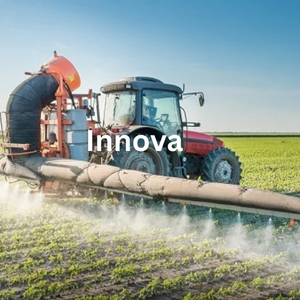
“Smart Chemistry for Healthy Crops & Higher Yields.”
Innovacorp India is a premier manufacturer of advanced Agriculture Chemicals, delivering specially formulated solutions that empower modern farming. Our product range is engineered to support crop protection, soil enrichment, and significant yield improvement. By integrating cutting-edge chemical science with sustainable practices, we help farmers achieve superior productivity, enhanced crop quality, and long-term soil vitality.
Today’s agriculture faces intense challenges, including resistant pest attacks, acute nutrient deficiencies, and increasing water stress. Our specialized Agrochemical solutions provide precise, science-backed interventions to overcome these hurdles, ensuring every seed reaches its maximum genetic potential.
We offer a diverse portfolio of chemicals tailored for the entire crop lifecycle:
Choosing Innovacorp’s agriculture solutions offers distinct advantages:
Our chemicals are trusted across various agricultural segments, including:
Conclusion:
Agriculture Chemicals from Innovacorp India are the backbone of sustainable modern
farming. By utilizing our expert-grade fertilizers, pesticides, and biostimulants, farmers can
achieve unprecedented growth, higher profitability, and contribute to global food security.
Experience the future of farming with Innovacorp’s smart chemistry.
© 2026 Innovacorp India Pvt Ltd. All Rights Reserved. Managed & Developed by Innova Corporate India